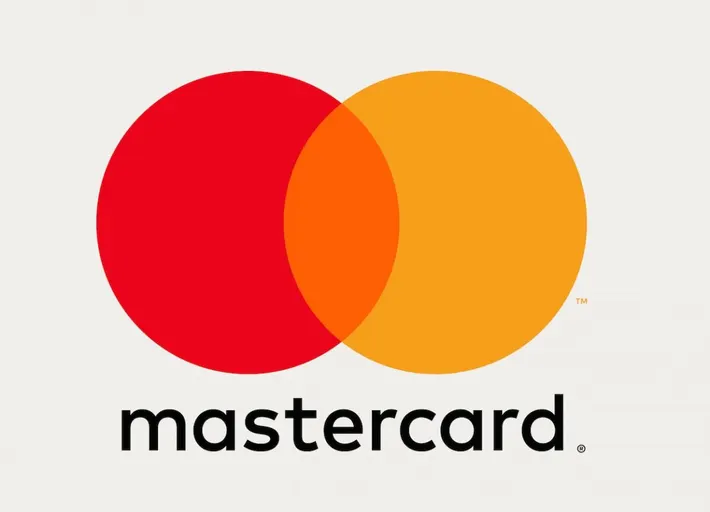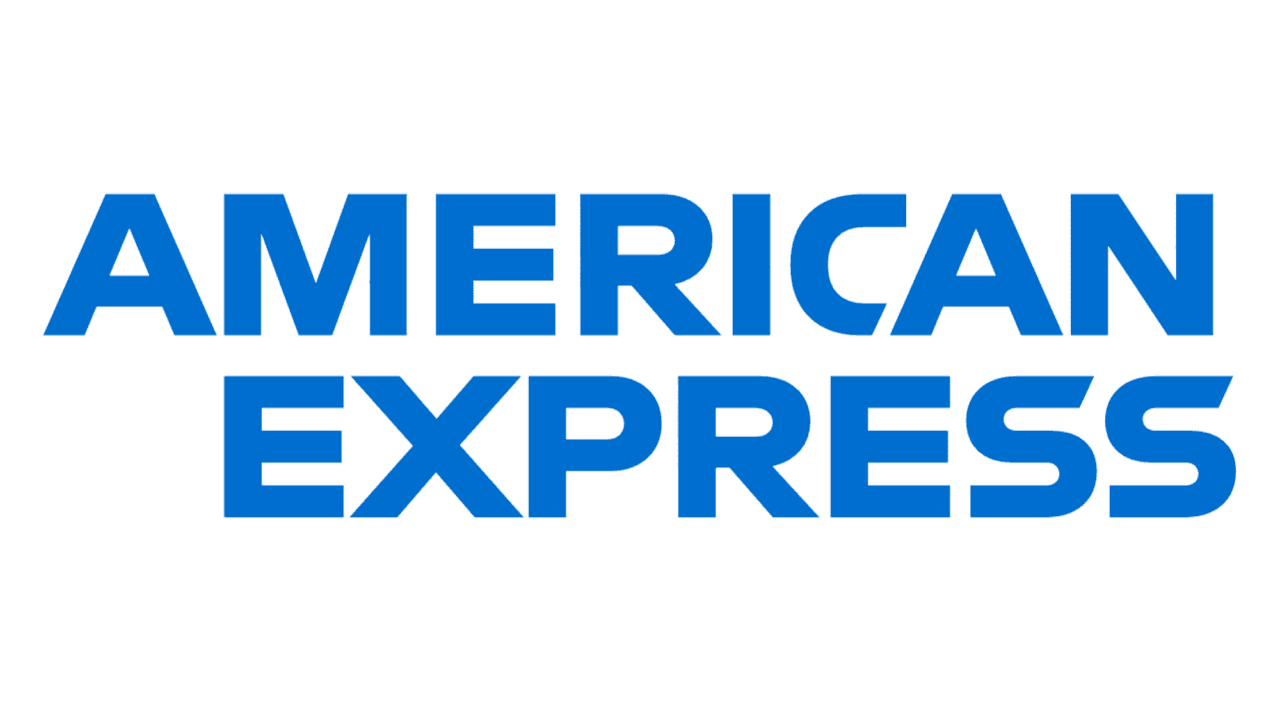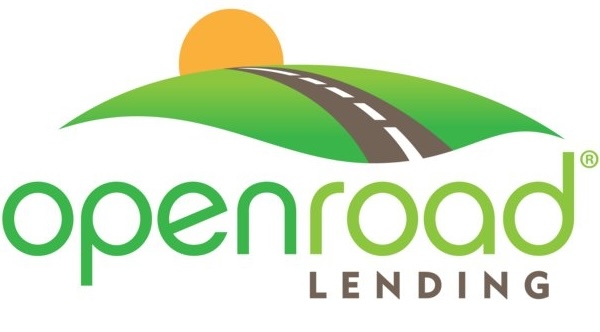
What is car insurance?
Car insurance is a type of insurance policy that provides financial protection to car owners in the event of damages or losses that come from accidents, theft, or other events. There are multiple types of coverage that cover a variety of liabilities. The insurance policy can cover liability for property damage, and injuries caused to other people, as well as damage to the insured vehicle.
The policyholder pays a regular premium (either monthly, bi-yearly, or yearly) to the insurance company. In return, the insurance company agrees to cover the costs associated with any covered losses that are over the deductible. This costs are only covered up to the limits of the policy. The exact coverage and limits of a car insurance policy vary based on the type of coverage selected.
Most states require car owners to carry liability insurance or prove that they have the financial resources to cover the liability of an auto accident. Most auto lenders require collision and comprehensive coverage on cars if there is an outstanding loan balance on the car.
How does car insurance work?
Car insurance companies offer to insure your car and your driving against the expense of an accident in exchange for a monthly premium or payment. Like all types of insurance, the company makes statistical guesses as to whether you might get into an accident and what it would cost if you did. The insurance company would never be able to really predict whether you would get into an accident. Instead, they compare you to groups that look like you: age, gender, driving record, etc. Then they predict to cost of accidents, etc for everyone in the group. They base your premiums on this total cost.
What are the different types of car insurance?
There are several types of car insurance coverage available, including:
- Liability insurance: Liability coverage will pay for injuries or damages that you cause in an accident. Almost all states require drivers to carry liability insurance.
- Collision insurance: This type of coverage pays for damages to your own vehicle resulting from a collision, regardless of who was at fault.
- Comprehensive insurance: This type of coverage pays for damages to your vehicle caused by non-collision events such as theft, vandalism, or natural disasters.
- Personal injury protection (PIP): This type of coverage pays for medical expenses and lost wages for you and your passengers in the event of an accident, regardless of who was at fault.
How is car insurance money paid out?
When you have a car insurance claim, several things happen before you receive payment. First, an insurance adjuster will evaluate how much to reimburse you for the accident. If the accident totals your car, the insurance company will determine the value of the vehicle you were driving before the accident. If the accident does not total the car, the insurance company evaluates the cost of repairing your automobile. For that reason, they often use pre-authorized mechanics.
When it’s time to reimburse you, the car insurance company may send you a paper check, transfer payment directly into your bank account, or pay the mechanic directly for repairs that need to be made.
How do car insurance companies make money?
Car insurance companies make money in two big ways and one small way:
Charging premiums
Insurance companies spend a lot of money to understand how often accidents are likely to happen. They also try to determine who is more likely to experience an accident. This allows them to set premiums low enough to attract new customers but high enough that they don’t lose money.
Of course, insurance companies will always try to earn more money in premiums than they pay out in claims. For very large insurance companies, they can often do this through the magic of statistics and probabilities. Events can be relatively predictable given a large enough dataset.
Investing money
Insurance companies are cash businesses, meaning that they have a lot of cash on hand. If you don’t get into an accident for a couple of years, you would be paying premiums for a long time without costing the insurance company any money. Of course, when an accident does happen, it might cost them as much as they have charged you in the time that you’ve been a customer. Overall, they might not make any money on you. However, collecting the money over time allows them to invest that money in ways that will earn a profit.
Fees and penalties
A much smaller way in which insurance companies make money is when people are late making their premium payments and incur a fee or penalty. They might also charge a fee for canceling a policy or filing a claim.
What is the declaration page of a car insurance policy?
The declaration page of your car insurance contract will summarize your policy. It describes the coverage you have, and the selections you have made. Sometimes the page will be called the “dec page” and is usually the first page of your policy.
It will include:
- Your name
- Your address
- The effective dates of the insurance coverage
- The types of coverage you have selected
- The coverage limits
- The deductibles you will be responsible for
- The automobiles covered by the policy
- The drivers covered by the policy
- The discounts applied
- The premiums owed
What are exclusions in a car insurance policy?
Exclusions in a car insurance policy are the events, instances, and situations where the policy will not cover damages. The exclusions are often directly connected to the type of coverage you select. There are three categories of exclusions: 1) Losses, 2) Property, and 3) Events.
Examples of exclusions in a car insurance policy include:
- Theft of personal belongings in the car
- Custom parts or equipment
- Normal wear and tear
- Catastrophic events like war, earthquakes, flood
- Drivers not named in the policy
- Using the car for business purposes
- Paying off car loans
- Reckless behavior, like car racing
- Driving outside the United States
- Speciality vehicles like RVs and ATVs
- Damage made intentionally
What are conditions in a car insurance policy?
Conditions in a car insurance policy are items that might affect whether an insurance company must pay. Common conditions include:
- Cancellation
- Changes in coverage
- Audits
- Inspections
- Premiums
- Assignment of the policy
What are the basic parts of car insurance?
Car insurance will have a premium, a deductible, and coverage. The coverage in car insurance includes five types of coverage:
Liability
Liability insurance compensates medical fees, legal expenses, and damages in the event that you are held responsible for an accident. In nearly all states, drivers are required to carry liability insurance.
When you consider carrying liability insurance, it isn’t just an on-off switch. You must decide how much liability coverage you will carry. Liability insurance is usually presented as three numbers, for example $25,000/$50,000/$25,000. This represents $25,000 in bodily injury per person involved in the accident, $50,000 in total bodily injury per accident, and $25,000 for damage to property besides the cars involved in the accident.
Collision Coverage
Collision coverage helps pay for damage, repairs, or replacement of your car in the event of an accident. It covers you regardless of who is found to be at fault.
Personal injury protection
Personal injury protection covers medical, funeral, lost income, and other injury-related costs, irrespective of fault. This type of coverage is commonly referred to as ‘no-fault’ insurance.
Uninsured and underinsured motorist
Car insurance generally covers the costs associated with accidents when you are to blame for the accident. Uninsured motorist coverage will cover your costs to an accident when the one at fault is a driver who does not carry insurance. This is important because they are unlikely to be able to pay for damages.
Comprehensive
Comprehensive coverage will pay for damage to your car that might occur that is outside of your control. This covers things like hail damage, flooding, falling objects, fire, theft, and vandalism. This does not cover normal wear-and-tear, mechanical breakdowns, or maintenance. The events and situations that are covered by comprehensive coverage vary by insurance company.
It is important to realize that comprehensive coverage does not mean that it “covers everything.” It mainly covers damage to your automobile that does not occur in auto accidents.
Medical payments
Medical payment coverage will pay for medical expenses that you or your passengers might incur in a car accident. In some cases, you have this coverage even if you are riding in someone else’s car. Medical payment coverage often ranges from $1,000 to $10,000.
Personal injury protection also covers medical payments, but also covers things like lost wages and funeral expenses which medical payment coverage does not. You would carry medical payment or personal injury protection, but not both.
Although, not all policies have all of these types of coverage. Which coverage you have will depend on the kind of coverage you want and what you can afford.
What is a car insurance premium?
A car insurance premium is the amount you pay to the car insurance company in exchange for the coverage. A premium can be paid monthly, twice a year, or yearly and is paid up front. Therefore, by paying annually and making your payment in January, your coverage extends for the following twelve months. It does not cover the previous twelve months. Insurance companies often provide discounts if you are willing to pay twice a year or yearly.
What factors affect car insurance premiums? What affects car insurance rates?
Insurance companies set their rates or premiums based on many different factors. This gives them the opportunity to give more competitive rates to people or groups that they decide are less likely to get into accidents or will cost less if an accident does occur. It isn’t uncommon for insurance companies to use the following factors when setting your insurance rates:
- Age: Insurance is typically more expensive for the very young and the very old.
- Gender: Men typically pay more for car insurance than women do.
- Marital status: While it may not have a significant effect, some insurance companies do factor in marital status when setting insurance rates.
- Location: Where you live will affect your car insurance premiums. It could be that you live in a place with more accidents. It could also be that there are more natural disasters (i.e., hurricanes, hail, flood, etc.)
- Annual mileage: It makes sense that the more miles you drive, the more likely you will be in an accident. So, insurance companies often take annual mileage into account when setting your insurance rate.
- Years of driving experience: Insurance companies recognize that people get better at driving an automobile the longer they do it.
- Driving record: Getting a moving violation can signal a higher likelihood of getting into an accident and therefore could lead to higher insurance rates.
- Prior claims: If you have made a claim against an insurance company, that could lead to a higher rate than you otherwise might have.
- Credit: Your credit report is used to create a credit based insurance score. These scores are correlated to credit score and lower scores typically pay more for car insurance.
- Insurance history: A disruption in your insurance history could result in higher premiums.
- Vehicle model: Since a car insurance company may have to pay to repair a car, it only stands to reason that an expensive car will cost more to insure. Additionally, insurers will charge higher premiums for cars with a higher likelihood of theft.
- Vehicle features: Certain car features can lower insurance premiums, for instance anti-theft devices.
- Vehicle owner status: Insurance companies may set a different rate depending on whether you own, lease or rent your car.
- Type of coverage: One of the biggest factors to how much your car insurance rate will be is the type of coverage that you select. If you only have liability insurance, for example, your rate will be much lower, but you won’t be covered in case of collision.
- Deductible: Setting your deductible high will result in a lower premium, but it will mean that you will be responsible for more of the costs in the event of an accident.
- Coverage limits: The upper limit on what an insurance company will assume responsibility for will also affect your insurance rates.
- Number of people on the policy: Not only will the number of people on a car insurance policy affect the insurance rates, but the demographic characteristics of those people will also affect them.
- Discount options: There are a range of different discount options that you could receive. Qualifying for them might affect your car insurance rate.
What is a deductible in car insurance?
A car insurance deductible is the amount of money you agree to pay against the costs of an incident. You have to pay this amount before the insurance company will pay any of the expenses associated with a covered claim.
How do car insurance deductibles work?
When you have a claim, the deductible is the amount you have to pay out-of-pocket before the insurance coverage kicks in.
What is an example of a car insurance deductible?
Assume you have a $500 deductible and you get into an accident that causes $3,000 worth of damage. You would be responsible for paying the first $500 and your insurance company would cover the remaining $2,500.
What is a good deductible for car insurance?
If you can avoid making any claims, it is always better to have a high deductible because it will mean that you pay less in premiums. Of course, you can’t always predict whether you will need to make a claim. Even the safest drivers can experience a mishap that will require them to file a claim with their car insurance company. Whether you have a good deductible or not probably depends on whether you will be able to absorb the cost of the deductible in the event that you need it. If you are risk averse, you may want a higher deductible. If you have a great driving record and a decent amount saved for emergencies, you may want a higher deductible.
Is it better to have a $500 or $1000 deductible on my car insurance?
The higher your deductible, the lower your insurance premium (or the amount you pay for your insurance policy).. This is because you are taking on more financial risk by agreeing to pay a larger portion of the expenses in the event of a claim. Whether it is better to have a higher deductible, but a lower regular premium depends on what you can afford and what risk you want to assume.
It’s important to have a deductible that you can afford to pay in the event that you need to make a claim.
What is a claim in car insurance?
A claim is a formal request to your insurance company for reimbursement. You are telling the insurance company that you believe the damage is covered by your insurance policy. They call it a “claim” because you are claiming your coverage under the insurance policy.
The most common types of car insurance claims are:
- Collision claims: These are claims filed when a driver’s car collides with another object, such as a tree or another car.
- Comprehensive claims: These are claims filed when damage is caused to a car by something other than a collision, such as a fire, theft, or weather event.
- Property damage claims: These are claims filed when a driver’s car damages another person’s property, such as a fence or a mailbox.
- Personal injury claims: These are claims filed when a driver or a passenger in their car is injured in a car accident.
What do you need to make a car insurance claim?
To file a car insurance claim you provide the insurance company with information about the accident, such as
- The date and time
- Location of the accident
- Those involved in the accident, including their insurance information
- Names of any witnesses
- Information about your car (if you policy covers more than one automobile)
How does car insurance work if someone borrows your car?
Typically, car insurance is attached to the car, not the driver. Some drivers may have a policy that will cover them when they are driving a different automobile. If someone borrows your car and causes an accident, which insurance company pays for the damages will depend on the language of the two policies and coverage.
Every state has different laws that govern how drivers and automobiles need to be covered. Therefore there are no universal rules about liability in circumstances where someone borrows your car.
If I am in an accident, do I have to file a claim with my car insurance company?
If the accident is minor, such as a fender bender, you may not need to file a claim with your insurance company. The severity of the accident, the damage to your vehicle, and other drivers’ insurance information might require you to file a claim with your car insurance company.
If you are involved in a serious accident, such as a collision or a hit-and-run, you will likely need to file a claim with your insurance company. Even if you are not at fault and are unlikely to be held liable for the accident, your insurance company can represent your interests in any disputes. They are likely to help because if you are found liable, they would need to pay for the damages.
Where can I get car insurance?
There are three ways to shop for car insurance that can help you get what you need:
- Insurance agent or broker: The advantage of using an insurance agent is that they understand the market and can help make sense of the different options. They can help you find exactly what you’re looking for. They might be able to use their knowledge of the industry to find you options that you might not have known to look for. On the other hand, you might end up paying between 5% and 20%.
- Insurance company website: Going directly to insurance company websites to get a bid on insurance could be an inexpensive way to find a reasonable bid for insurance. The downside is that you are likely to only apply for insurance from companies you’ve already heard about. You might not know to apply to a company that could provide you the options you want.
- Referral websites: Websites that allow you to shop around force insurance companies to compete directly for your business. You can see several options all at once which can make shopping for car insurance much more efficient. The Yukon Project has a widget where you can check several different insurance companies. You can find it here.
How fast can I get car insurance coverage?
Filling out an application can take just a few minutes. Just make sure you have all the information you need to apply first. It often only takes a few minutes to get approved. Insurance companies will often give you “proof of insurance” that you can print out that same day. They will mail you an official insurance card within a couple of weeks.
What might take the most time is shopping around for the best deal or deciding what options you want. The Yukon Project can help make shopping around much easier. Start the process now.
Who normally has the cheapest car insurance?
The only way to know for sure who will provide you the cheapest car insurance is to shop around. This is because companies have different policies, discounts, and geographic coverage. Company A might normally be cheaper than Company B, except in your hometown.
What factors affect insurance rates?
In fact, there are many factors that will affect the cost of your car insurance premiums. The following characteristics will affect the cost:
Driver characteristics
- Age
- Number of drivers
- Gender
- Marital status
Drivers’ behavior and history
- Credit history
- Driving record
- High-risk violations
Vehicle characteristics
- Make and model of your car
- Number of cars
Location characteristics
- Geography (the zip code where you live)
- State requirements
- Yearly mileage driven
Policy and coverage decisions
- Type of coverage (basic, comprehensive, collision, personal injury protection, etc.)
- Deductible
- Presence of past claims (or the lack of claims)
Discounts
The types of discounts that you can be eligible for will also affect the cost of your insurance.
So, really the only way to be sure of what company will offer you the cheapest (and best) insurance is to shop around.
Does car insurance cover the car or the driver?
Car insurance policies are attached to the automobile, not the driver. That is probably why it’s not called driver insurance. If someone else is driving your car and they cause an accident, your insurance which is attached to your car would kick in before theirs would.
Does my car insurance policy cover the rental car that I am driving?
Typically, car insurance covers the car, not the driver, but the exception to this rule is when you rent a car for personal use. Policies often cover you when you are driving a rental car for personal use. However, you should review your policy first. You should also check the rental agency’s liability policy to ensure you are covered before you drive off the rental lot.
Does car insurance cover repairs?
Car insurance does not typically cover repairs from normal wear and tear, but will cover the damage done to your car in the event of a covered event. The covered events are dependent on the type of coverage that you carry and the deductible on that coverage. For example, if you have a collision and your car takes damage in an accident with another car, the insurance company will cover the damages. If the cost to repair the damages are below your deductible, the insurance company will not cover the repairs.
Your car is unlikely to be covered for events like damage from falling objects, vandalism, and theft if you do not have comprehensive coverage.
What kind of discounts could I get on my car insurance?
One of the ways that insurance companies compete for your business is by offering discounts. There are many different discounts that you might be eligible for. When you’re looking to get car insurance check for some of the following:
Affinity discount
An affinity discount is any discount that is offered because of your membership in an organization. The organization could be an alma mater, a club, fraternities or sororities, or even a business.
Anti-theft device discounts
Because car insurance covers in the event that your car is stolen, insurance companies may give a discount if your car has anti-theft devices or features. Some anti-theft devices might include manual disabling devices like steering wheel lock or kill switch, automatic disabling devices like transponder keys and audible alarms, or vehicle tracking systems like GPS or vehicle recovery systems.
Bundling policy discount
Most insurance companies are large entities that offer a wide range of insurance policies. So, the insurance company May provide extra discounts if you bundle more than one type of insurance with them. You might carry auto, homeowners, renters, motorcycle, boat, or even sometimes a life insurance policy with the same company. Grouping these with one company can often lead to a bundle discount.
Defensive driver discounts
Whether you can earn a defensive driving discount on your car insurance often depends on your State’s regulations or laws. If you can earn a defensive driving Insurance discount you usually have to take some kind of defensive driving course.
Early bird discount
Some insurance companies offer an early bird discount which they will give you if you are shopping for insurance before your prior insurance has lapsed. This encourages people to sign with them early.
E-Pay or Electronic Funds Transfer (EFT) discount
Fewer insurance companies are offering an e-payment discount. Related to this discount is a discount you can earn by prepaying 6 months or a year in advance.
Good driver discount
Good driver discount is available to drivers who have avoided both accidents and moving violations, or tickets, in the recent past. Most of the time insurance companies require a clean record for 3 to 5 years to earn a good driver discount.
Good student discount
Young drivers are often a source of accidents and so their insurance premiums can be higher. Insurance companies have long recognized that many students who earn good grades are less likely to get into accidents and so they are willing to give good students a discount on their premiums. Usually, insurance companies require a student to have a GPA of 3.0 or better and prove it by sending in a school transcript.
Green vehicle discount
A green vehicle discount for auto insurance requires that a car uses alternative energy source such as biodiesel, natural gas, electricity, hydrogen, or ethanol.
Low mileage discount
To earn the low mileage discount you usually need to drive under 8,000 miles a year, but in some cases you just need to drive lower than the national average of 14,000 miles a year. It will obviously depend on your insurance company.
Loyalty discount
Insurance companies would love to not have to Market to maintain their customer base. So, they are often willing to give a loyalty discount for customers who have been with them for a number of years. This is especially true if the customer is always on time in paying their premium and hasn’t made any claims.
Military or veteran discount
Many insurance companies will offer discounts for active duty, retired, or members of the National Guard or reserves. Usually all you need to do to qualify is to present one of the following:
- Department of Defense (DoD) identification card: either a Common Access Card (CAC) or a Uniformed Services ID card
- Veteran Health Identification Card (VHIC)
- A state issue driver’s license or ID with a veteran’s designation.
Multi-vehicle discount
Most insurance companies will offer a multi-vehicle discount to a driver who insures more than one vehicle on the policy.
New car discount
Automobiles that are less than three years old can often qualify for a new car discount. While a new car may cost more to ensure because it would cost more to repair, it may earn a discount because a new car would have the latest safety features that can help prevent accidents.
Occupational discount
Strange as it may sound, insurance companies will often give discounts if you have a particular occupation. It may not make much sense that a teacher or an accountant is a better driver than others, but all they need to know is that it costs less to ensure them either because they are less likely to get into accidents or less likely to make claims. So, it always makes sense to ask about occupation discounts when you’re shopping for car insurance.
Paid in full discount
Insurance companies can save money by not having to process premium payments every month. They will often pass some of those savings on to drivers who are willing to pay for 6 months or a year’s worth of insurance up front. The added benefit to the insurance company is that they know you are less likely to shop around for another policy so long as you have already paid.
Paperless discount
It can be a heavy cost to print statements and send them to policyholders. So, Insurance companies began to offer discounts to Consumers who would receive statements through their app or website. These discounts are becoming more Uncommon as fewer and fewer people want paper statements.
Vehicle safety discount
It can be cheaper to insure a car with a similar model if it has added safety features, like Lane assist, anti-lock brakes, and cameras. If it isn’t obvious in the make and model of your automobile, you could earn a vehicle safety discount by mentioning what vehicle safety features you have on your automobile.
Why did my car insurance premiums go up?
There can be a lot of reasons why your car insurance rates go up after renewal. It can sometimes feel like your car insurance rates go up out of nowhere.
Some of the reason might include:
- Claim: If you make a claim on insurance, rates can go up when you renew.
- Moving violation: If you get a ticket, even if it didn’t result in an accident (or a claim), you may see your rates go up. The insurance might decide insuring you is riskier than it was before.
- Address change: If you moved, your insurance rates may change because the insurance company might decide your new location is riskier. It could be that the new place has more accidents or more natural disasters (like hurricanes in Florida, for instance.)
- Different vehicle: Because the insurance company is insuring against the cost of an accident, if you got a new car, they might reasonably decide that an accident would cost more.
- Claims in your area: Insurance companies set rates based on a lot of different factors. One of those factors is how many claims are made in your area. If you had a particularly harsh winter and a lot more cars got into accidents than usual, your rates could go up even if you were able to avoid an accident.
- Inflation: As costs for car parts, repairs, and medical expenses due to accidents increase, insurance companies may increase rates to keep up with inflation.
- Change in your credit history: If your credit score has dropped since your last car insurance renewal, then the insurance company may be re-evaluating your credit as well. It’s possible your rates could go up because they decide your are now in a riskier group.
- Added a new driver: If you add someone to your policy (like a spouse or a 16 year-old driver), you are likely to see your rates increase because your policy will cover more people.
- Change in driving patterns: Insurance companies love statistics. They calculate the likelihood of an accident based on the number of miles driven. If you get a new job and your commute doubles the number of miles you drive in a year, you might see your rates go up.
- Change in discounts: If you signed up with your insurance company with discounts for which you are no longer eligible, your rate could go up upon renewal.
Does car insurance go by credit score?
Insurance companies do not use standard credit scores like FICO and VantageScore in determining your insurance rates. They use a “credit-based insurance” score. Your credit-based insurance score is calculated using information in your credit report. About 90% of insurance companies use a score like this as one of the factors in setting the rate for your car insurance. Under the federal law that governs how companies can use your credit report (the Fair Credit Reporting Act, or FCRA), insurance companies have a “permissible purpose” to review your credit report when determining whether to offer you an insurance policy and what the premium will be.
Do car insurance companies run your credit?
Insurance companies may look at your credit report and use the information there to create your credit based insurance score. They may look at some of the detail on your credit report, like:
- Negative items like bankruptcy, collections, and foreclosures
- Payment history
- Outstanding debt
- Homeownership
- Types and number of credit lines
- Length of credit history
Does it hurt my credit score to get car insurance quotes?
Car insurance companies do what is called a “soft inquiry” of your credit report when you apply for an insurance policy. Soft credit inquiries do not affect your credit score, even if you will be able to see the event on your credit report. Since insurance companies are not extending credit, they will not do a hard inquiry, which can temporarily affect your credit score.
Can I put insurance on a car that is not in my name?
In most cases, you cannot insure a car that is not in your name. Insurance companies need to know who owns the cars that they insure in order to determine who is legally responsible for damage that the car causes. If the car is not yours, you are not legally responsible for the damage that the car causes.
There are a couple exceptions to this rule. For example, if you co-own the car, you can insure it even if your name is not on the title. You can also insure a car that you are borrowing from someone else as long as you get permission from the owner of the car before you insure it.
What are the biggest car insurance companies?
The largest car insurance companies include:
- Progressive
- State Farm
- Geico
- Allstate
- USAA
- Liberty Mutual
- Farmers Insurance
- Travelers
- Nationwide
- American Family Insurance






























